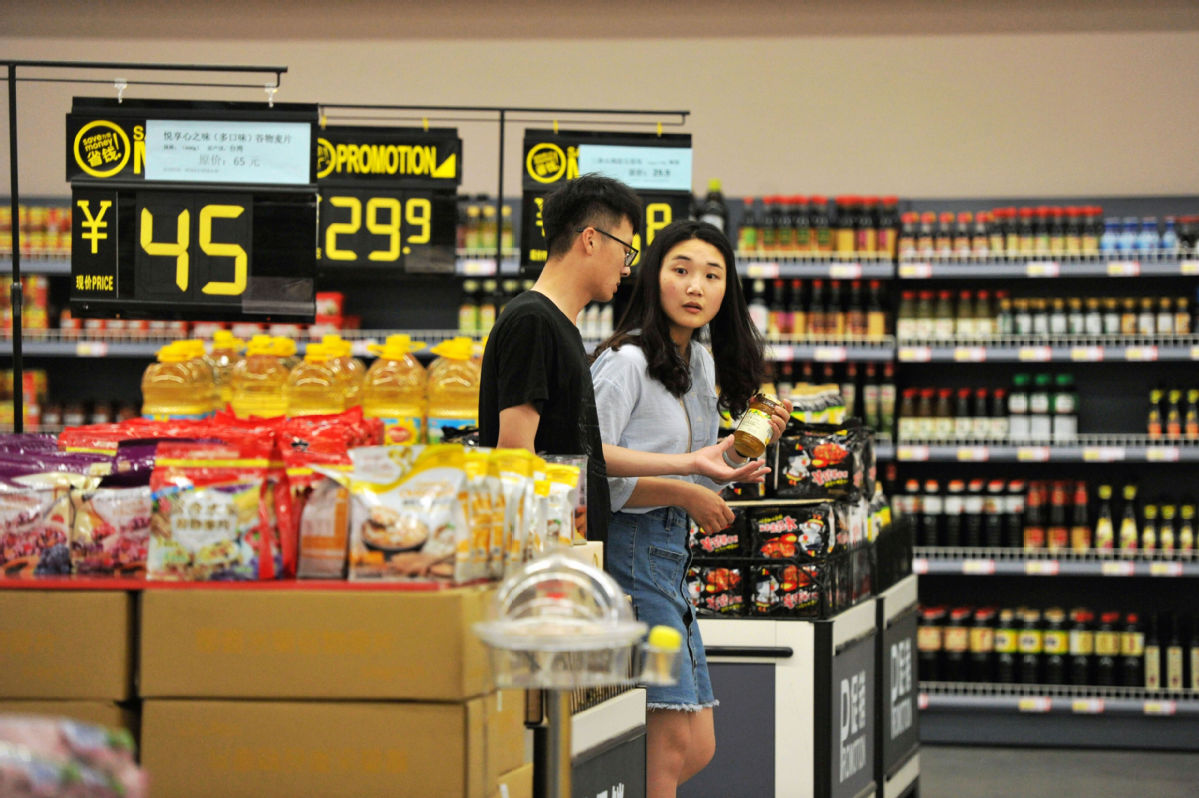FMCG benefits from consumption upgrade in China


The ongoing consumption upgrade, which is most pronounced in high-end categories, is having a knock-on effect on certain segments of the fast-moving consumer goods or FMCG market.
Sales of enhanced versions of products like instant noodles, beer, and processed mustard tuber are up, market insiders said.
Last month, the first-half financial results of Masterkong Holding Ltd, an instant noodles brand, showed sales revenues surged 8.5 percent year-on-year to 31 billion yuan ($4.55 billion), yielding a profit of 1.31 billion yuan, up nearly 87 percent.
Sales of its flagship product instant noodles alone reached 11.1 billion yuan, up 8.4 percent year-on-year.
Sales of beverages and snacks that are generally consumed with instant noodles also rose. In the first half of this year, Tsingtao Beer's sales revenue rose 0.6 percent to 15.2 billion yuan, with net profit growing 13 percent to 1.3 billion yuan.
Similarly, sales revenue of Chongqing Fuling Zhacai Group Co Ltd, which produces mustard tubers, surged 34 percent to 1.06 billion yuan.
The uptrend sparked a debate among marketing circles if Chinese consumers are trading down, potentially reversing the consumption upgrade.
But Zhao Ping, director of research at the Academy of China Council for the Promotion of International Trade, said China's consumption upgrade is intact.
"FMCG sales growth came from innovative versions of existing products. It's not as if consumers are shifting from top-end items to mid-range or low-end categories.
"For example, sales of instant noodles slowed in the past years. So, some companies invested in innovation and revitalized their product portfolio. They launched high-end versions to meet consumers' needs. That should explain why high-end instant noodles saw faster growth, while sales of low-end versions didn't grow as fast."
The story is not very different in the beer market, he said. "Take Tsingtao Beer for example. In addition to traditional distribution channels like restaurants and supermarkets, Tsingtao tapped filling stations, and opened new sales points where consumers can buy fresh beer in bulk. Its sales soared on this innovation. This is not consumption downgrade."
In fact, many luxury brands in China are continuing to see double-digit growth.
"The consumption upgrade is on, on the back of rising incomes. In the past decade, the rise in China's per-capita income kept pace with GDP growth rate, boosting people's purchasing power. The current macroeconomic environment supports consumption upgrade," Zhao said.
Li Xunlei, chief economist with Zhongtai Securities, said: "There is no consumption downgrade. Instead, China is still experiencing consumption upgrade. Consumption is increasingly concentrated in products of top companies. There are even consumption hot spots in the market."
According to a recent report from the Ministry of Culture and Tourism, in the first half, there were 2.83 billion domestic tourism visits, up 11.4 percent year-on-year. The visits caused a 12.5-percent year-on-year rise to 2.45 trillion yuan in sales of various products and services. Part of that revenue was from a rise in tourism-related food consumption. Some tourists consume food like instant noodles a lot, analysts said.
- Italian wine exporters see potential in changing tastes
- Service-sector investment a top priority to diversify economic structure
- Online-offline integration shaping retail industry development
- New trade deals to promote dairy, food product exports from UK
- New Shanghai policy shortens time for cosmetics imports




































